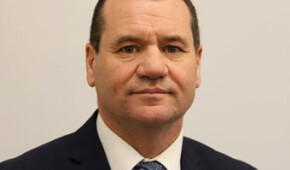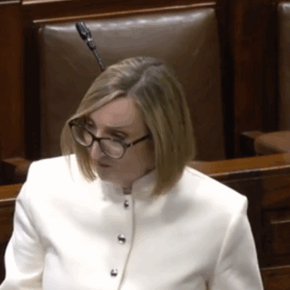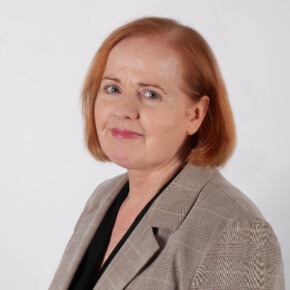Battle to secure school places for autistic school children
Mike Finnerty 26 Jun 2024
Despite the school year coming to an end, panic has set in for the parents of children with autism in a battle to secure school places for September.
A protest was held outside the Dáil on Thursday, June 20 by Blanchardstown parents.
Tadgh Rogan, father of Rian, said “we are protesting on behalf of Rian and other children in the area who are without an appropriate school place for September. We have got rejection letters from 13 schools and are aware of others who have more than that.”
Tadgh expressed concerns that Rian would “regress from the progress he has made in his specialist preschool since last September.”
He said that there is an “obvious deficiency and under-funding in the area of all disabilities.”
Carol Leonard, mother of Noah, said that her son was given an autism diagnosis when he was two years old and that he would be “lost without school, as it’s the only help we receive for him.”
“We sent off the report to the HSE and it was deemed inadequate and Noah was placed on the CDNT waiting list with a 72-month wait.”
She said that Noah, who is also non-verbal, has had only one speech and language therapy assessment from the HSE and nothing since.
“If he does not have placement in September with the proper supports, he will most definitely regress,” she said.
Shannon Maguire, mother of Macie, said that Macie was diagnosed with autism last year and has had “no luck” in securing a junior infants place for her.
“My daughter has already been let down with HSE services: she is missing out on speech and language therapy. Macie is non-verbal so these services are very important to develop her little voice — and I know there is one and it’s dying to come out.”
“She needs an education to help along the way. As a mother, seeing how my child is being treated is painful — you would only understand if your child has a diagnosis of autism and you are on our level.”
She stated that the world “already feels dark and lonely – why should our kids suffer too?”
“I don’t understand why my daughter and every other child out there are not as important to children attending mainstream school.”
A January 2024 report from the National Council for Special Education found that there is now a 3.3% prevalence rate in autistic children in Ireland, up from 1.5% in 2018.
In response to a Dáil question submitted by Sinn Féin TD John Lahart last September, the HSE said they do not gather information routinely “on the basis of diagnosis.”
“There is no specific autism register in Ireland and the HSE is not currently able to provide detailed information on the number of children and adults with autism.”
“Although the HSE has experienced an increased demand for assessment of autism, we cannot be sure that this is a result of increased prevalence. It may be due to increased awareness of autism coupled with a recognition of the need for earlier interventions.
“In addition, many individuals with autism, due to the complexity of their presentation may have a primary diagnosis of intellectual disability or a comorbid mental health component.”
The hand-waved excuse from the HSE is little consolation to parents.
“I am here this year because I don’t want to be here next year feeling the stress and anxiety of these parents with no school place for September or the same anguish and misery of those parents that have been coming here for the past six years behind them,” said Laura Murray.
Her autistic son Jared is doing “incredibly well” in an early intervention preschool and as a result of the early intervention he may well be ready to enrol in mainstream education with the right supports in place.
Despite Jared being one of the more fortunate children in this story, there is still a difficult path ahead.
“We have already been fighting for services and assessments for our children since we realised they weren’t meeting their milestones and there just seems to be a new battle to fight around every corner,” she said.
Castleknock councillor Ruth Coppinger said she was backing the parents in their struggle, saying they have been the subject of “mistreatment and neglect” by the state.
“How in a country with record tax revenues is it acceptable that some children just don’t get a school place? I salute the initiatives the parents have taken to bring this to public attention but they shouldn’t have to.”
Despite Dublin 15 being the home of a former Taoiseach and two members of Cabinet, that benefit is seemingly not having a tangible benefit to the lives of residents.
The Solidarity councillor and former TD stated that the Fine Gael-led government has “consciously underfunded special education and outsourced essential care to the private sector, leaving children on seven-year waiting lists.”
“We need autism classes opened at a primary and secondary level, more special schools and a massive training of teachers, SNAs and other staff.”
She said that 150 special needs assistants are needed in Dublin 15 “immediately”.
“Parents don’t want their children in classes that were ‘forced to open’ — we need forward planning now,” she said.
When asked what the government plans to tackle the situation, Fine Gael TD Hildegarde Naughton admitted “I know we have more work to do.”
“To the parents, children, teachers and SNAs, I want them to know that I am listening. Providing an appropriate education and school placement for every child is an absolute priority for me, the Government, the Department and the NCSE.”
Kind words and platitudes from the Dáil do not reflect the reality on the ground in Dublin 15, however.
A March meeting held by Labour councillor John Walsh revealed the depth of the education crisis in Dublin 15.
The meeting was told that at least 13 children in Dublin 15 have no appropriate school placement for September and 111 children in primary schools are struggling to engage “meaningfully” with staff and peers due to a lack of services and specialised staff to support schools.
2023 statistics from the HSE found that 4,269 people had applied for an assessment of need in Dublin 15.
June 2023 statistics found that the waitlist stood at 2,829, while an additional 1800 people were “overdue” for an assessment of need appointment as of June 30 last year.
Statistics for Blanchardstown found there was a 4-year waiting list for an appointment, while the figure jumped to 7-and-a-half-years in Blakestown.
There is an 18-month waiting list for access to psychology services, a 3-year wait for a block of speech and language therapy sessions, and a 2-year waiting list for occupational therapy appointments.
“When I speak to parents, they really hope for the system to change,” said Helena Tranch, principal at the Powerstown Educate Together National School.











